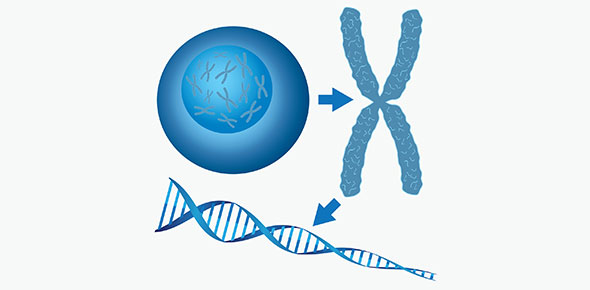Related Flashcards
Related Topics
Cards In This Set
| Front | Back |
|
Discuss the role of appraisal in the way we respond to stressful events.
|
Stress is not an action or a condition; instead, it is the process by which we respond to stressful events (stressors). An important part of that process is our appraisal of an event as threatening, challenging, or unimportant. Our appraisals help determine whether our response will be healthy feelings of energized and directed arousal, or overwhelming feelings of distress.
|
|
Identify the main types of stressors.
|
Pressure, frustrations, conflict, change.
|
|
Describe the biology of the fight-or-flight response.
|
Another role the hypothalamus plays includes triggering the pituitary gland (P) to secrete adrenocorticotropin hormone (ACTH) into the bloodstream. Responding to ACTH, the adrenal glands (A) (which sit on top of your kidneys) release cortisol (a glucocorticoid) and adrenaline (also known as epinephrine). These molecules drive the "fight or flight" response, preparing your body to react to emergency situation. (Priming the sympathetic nervous system)
|
|
Discuss why stress may increase our vulnerability to coronary heart disease.
|
The vital link in this stress-disease path is negative emotions—depression, pessimism, but especially anger. The Friedman-Rosenman study, the first to show the anger–heart-disease link, contrasted Type A personalities (competitive, hard-driving, impatient, and anger-prone) with Type B personalities (easygoing and relaxed).Under stress, Type A people are physiologically more reactive, with an outpouring of hormones that accelerate the buildup of plaque on artery walls, leading to high blood pressure and increased risk of strokes and heart attacks.
|
|
Identify two ways people cope with stress.
|
When we use problem-focused coping, we attempt to reduce stress directly by changing the events that trigger stress reactions or by changing the way we react to those events. We tend to use emotion-focused coping (putting distance between ourselves and a stressor, or attending to our own emotional needs) when we believe—rightly or wrongly—that we cannot change a stressful situation.
|
|
Describe the influence of social support and meaning in life on health.
|
Supportive family members, marriage partners, close friends, and companionable pets help people cope with stressful events. Social support fosters stronger immune functioning, calms the cardiovascular system, and lowers blood pressure
|
|
Describe the first stage and physical characteristics of the General Adaptation Syndrome.
|
During the alarm phase, a stressor disturbs homeostasis. The brain subconsciously perceives the stressor and prepares the body either to fight or to run away, a response sometimes called the fight or flight response. When the mind perceives a stressor, the cerebral cortex, is called to attention. If the cerebral cortex consciously or unconsciously perceives a threat, it triggers an autonomic nervous system response that prepares the body for action. The autonomic nervous system is the portion of the central nervous system that regulates bodily functions that we do not normally consciously control. When we are stressed, the rate of all these bodily functions increases dramatically to give us the physical strength to protect ourselves against an attack, or to mobilize internal forces. In addition to this, the hypothalamus, a section of the brain, functions as the control center and determines the overall reaction to stressors. When the hypothalamus perceives that extra energy is needed to fight a stressor, it stimulates the adrenal glands to release the hormone epinephrine, also called adrenaline. Epinephrine causes more blood to be pumped with each beat of the heart, dilates the air sacs in the lungs to increase oxygen intake, increases the breathing rate, stimulates the liver to release more glucose, and dilates the pupils to improve visual sensitivity. The body is then poised to act immediately.
|
|
Describe the second stage and physical characteristics of the General Adaptation Syndrome.
|
The resistance phase of the general adaptation syndrome begins almost immediately after the alarm phase starts. In this phase, the body has reacted to the stressor and adjusted in a way that begins to allow the body to return to homeostasis. As the hypothalamus is working to energize the body, other processes are occurring to keep energy levels under control and return the body to a normal level of functioning.
|
|
Describe the third stage and physical characteristics of the General Adaptation Syndrome.
|
In the exhaustion phase of the general adaptation syndrome, the physical and psychological energy used to fight a stressor has been depleted. Short-term stress would probably not deplete all of a person's energy reserves, but chronic stressors, such as the struggle to get straight As, financial worries, or fights with family and friends may create continuous states of alarm and resistance. When a person no longer has the adaptation energy stores for fighting a distressor, serious illness may result.
|
|
Describe the effect stress has on our immune system.
|
When we’re stressed, the immune system’s ability to fight off antigens is reduced. That is why we are more susceptible to infections. The stress hormone corticosteroid can suppress the effectiveness of the immune system (e.g. lowers the number of lymphocytes). Stress can also have an indirect effect on the immune system as a person may use unhealthy behavioral coping strategies to reduce their stress, such as drinking and smoking.
|






